Tunisian president dismisses more officials amid political crisis
Tunisian President Kais Saied has removed the country’s defense minister from his position, amid global concerns about his decision to oust the prime minister and freeze parliament.
The presidency announced the ousting of Defense Minister Ibrahim Bartaji and Hasna Ben Slimane, the acting justice minister, on Monday afternoon.
The decision came a day after Saied ousted Prime Minister Hichem Mechichi and suspended parliament for 30 days, in a move denounced as a “coup” by the biggest political party, Ennahda.
The Tunisian president said at the time that his decision was meant to “save Tunisia, the state, and the Tunisian people,” following mass protests in several cities across the country against the government’s handling of the COVID-19 pandemic. He said that he would assume executive authority “with the help” of a government whose new chief he would appoint himself.
But Ennahda, the lead party in Tunisia’s fractious ruling coalition, said the move was “a coup d’etat” against the 2011 revolution that ousted former Western-backed ruler Zine El Abidine Ben Ali, as well as against the constitution.
Tunisian president hits back at critics
On Monday, Saied, who was elected in 2019, defended his decision as a constitutional and popular response to years of economic and political paralysis, telling his critics to review their "constitutional lessons.”
According to the president, Article 80 of the Tunisian constitution gave him the power to dismiss the government, appoint a temporary administration, freeze parliament, and lift the immunity of its members.
Saied also urged Tunisians to remain calm and not to take to the streets, saying, “The most danger a nation can face is internal explosion.” Earlier on Monday, he imposed a night curfew for a month after clashes between the supporters and opponents of his decision.
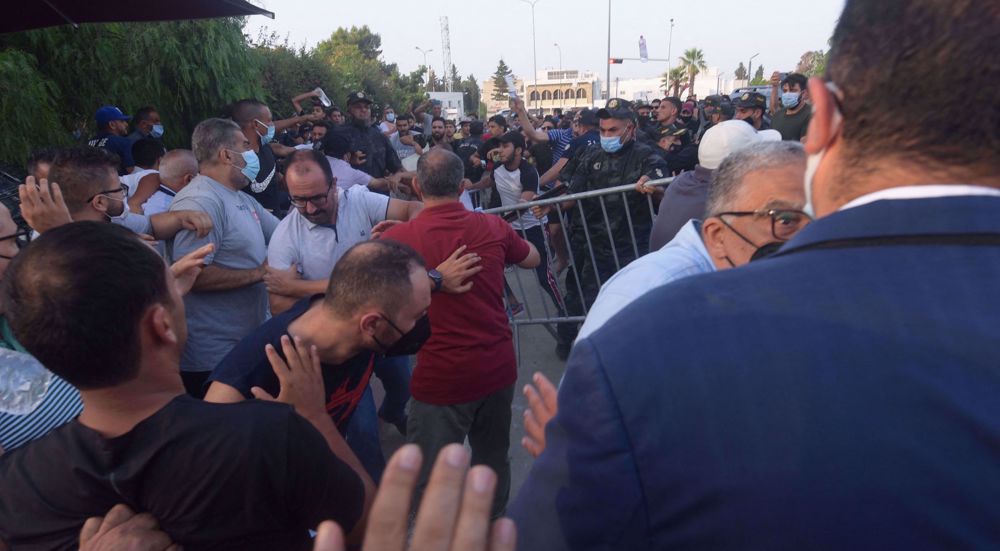
Tunisia PM says to hand over power
Mechichi, the dismissed prime minister, accepted the ousting and said he would hand over power to whomever the president chose.
“In order to preserve the safety of all Tunisians, I declare that I align myself, as I have always, by the side of our people, and declare that I will not take up any position or responsibility in the state,” Mechichi said in a statement on Facebook on Monday.
Global reactions
The latest developments in Tunisia have drawn reactions from some foreign governments.
US Secretary of State Antony Blinken spoke by telephone with Saied on Monday to urge respect for democracy and called on him to “maintain open dialog with all political actors and the Tunisian people,” according to the State Department.
In a statement issued on Tuesday, the European Union foreign policy chief Josep Borrell said the bloc was following developments in Tunisia with the greatest attention.
"We call for the restoration of institutional stability as soon as possible, and in particular for the resumption of parliamentary activity, respect for fundamental rights and an abstention from all forms of violence,” Borrell said.
The Arab League hoped in a statement that Tunisia would “move swiftly past the current turbulent phase in restoring stability.” The secretary general of the Cairo-based league, Ahmed Aboul Gheit, in a phone call with the Tunisian foreign minister, expressed “complete support for the Tunisian people.”
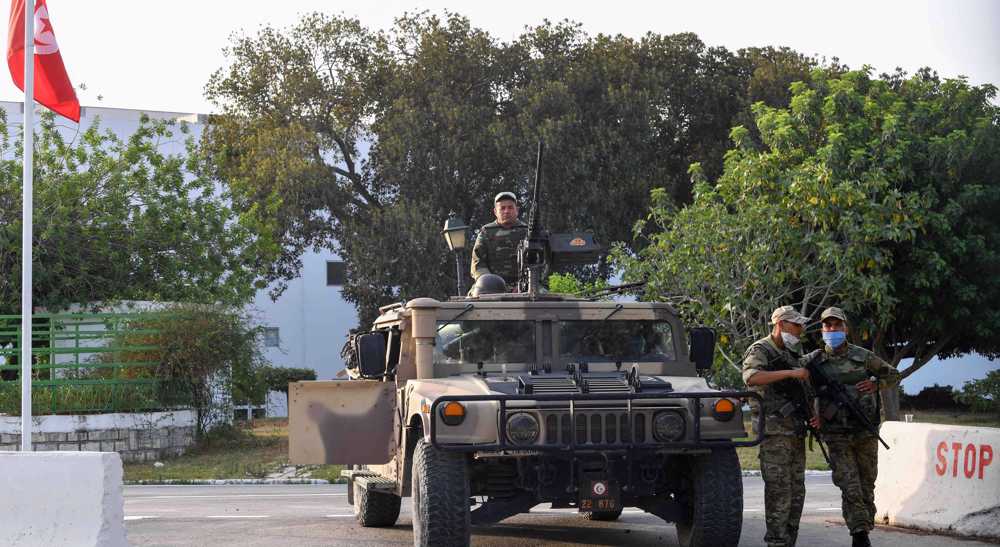
Also in a phone call with the Tunisian foreign minister, Saudi Arabia’s Foreign Minister Prince Faisal bin Farhan stressed “the kingdom’s keenness on the security, stability, and prosperity of Tunisia.”
Russia said it was monitoring developments in Tunisia, with Kremlin spokesman Dmitri Peskov saying, “We hope that nothing will threaten the stability and security of the people of that country.”
Qatar also expressed “hope... that the Tunisian parties would adopt the path of dialog to overcome the crisis.”
Meanwhile, France called for a return “as soon as possible” to the “normal functioning” of government in Tunisia.
In a tweet, Jordan’s Foreign Minister Ayman Safadi expressed hope “that our brothers will overcome these difficult situations in a way that preserves the safety, security, and stability of Tunisia.”
Turkey condemned Saied’s actions. The Turkish Foreign Ministry said it was “deeply concerned” and called for the restoration of “democratic legitimacy” in the North African country.
“We reject the suspension of the democratic process and the disregard of the people’s democratic will in friendly and brotherly Tunisia,” President Recep Tayyip Erdogan’s spokesman, Ibrahim Kalin, said on Twitter.
“We condemn initiatives that lack constitutional legitimacy and public support. We believe Tunisia democracy will emerge stronger from this process,” he added.
Germany also hoped Tunisia would return “as soon as possible to constitutional order.”
“Democracy has taken roots in Tunisia since 2011,” a spokeswoman for the German Foreign Ministry, Maria Adebahr, told reporters, noting that Germany was “very worried.” However, she said, “We don’t want to speak of a coup d’etat.”
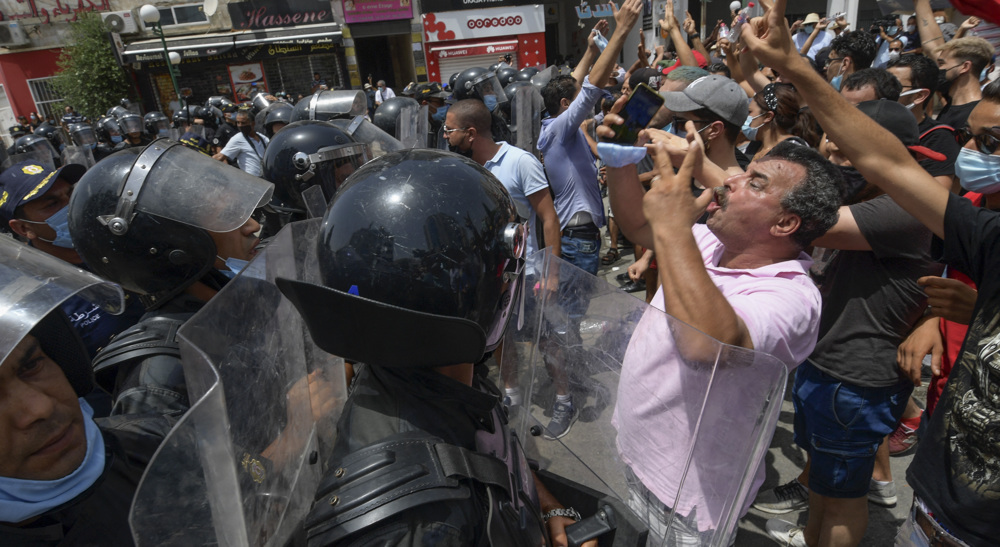
Moreover, media watchdog Reporters without Borders (RSF) denounced the forced closure of Al Jazeera’s office in Tunisia, saying, “We demand the immediate reopening without delay of the bureau and the return to normal working conditions for journalists.”
Speaking from Paris, Tunisia’s former president Mouncef Marzouki decried Saied’s move, calling it a “coup.”
“There is no doubt about the fact that it’s a coup because the president himself said I have all the powers,” Marzouki said, adding, “The main idea we have when writing the constitution is to say that the president is no longer the guy who has all the power.”
“Tunisia was supposed to be a success story in the Arab world. But it’s no longer a success story. But let me remind you that we have this political crisis amidst the worst health crisis that we have ever had in Tunisia,” he added.
The United Nations (UN) urged all parties in Tunisia “to exercise restraint, refrain from violence and ensure that the situation remains calm.”
“All disputes and disagreements should be resolved through dialog,” Farhan Haq, a spokesperson for UN Secretary-General Antonio Guterres, said on Monday.
Somaliland ready to give US access to its minerals, military bases: Minister
VIDEO | Iran's game changing retaliation boxes- part 1
VIDEO | Iran's game changing retaliation boxes- Part 2
VIDEO | Palestinian widow raises three kids in Gaza as her husband killed by Israel
Palestinian teen killed as raids and settler violence intensify across West Bank
Iran’s layered arsenal primed to deter – and decimate – US warships in Persian Gulf
Iranian commander dismisses US military buildup in West Asia as ‘theatrical gesture’
Trump ‘curious’ why Iran hasn’t ‘capitulated’ despite massive US military buildup: Witkoff


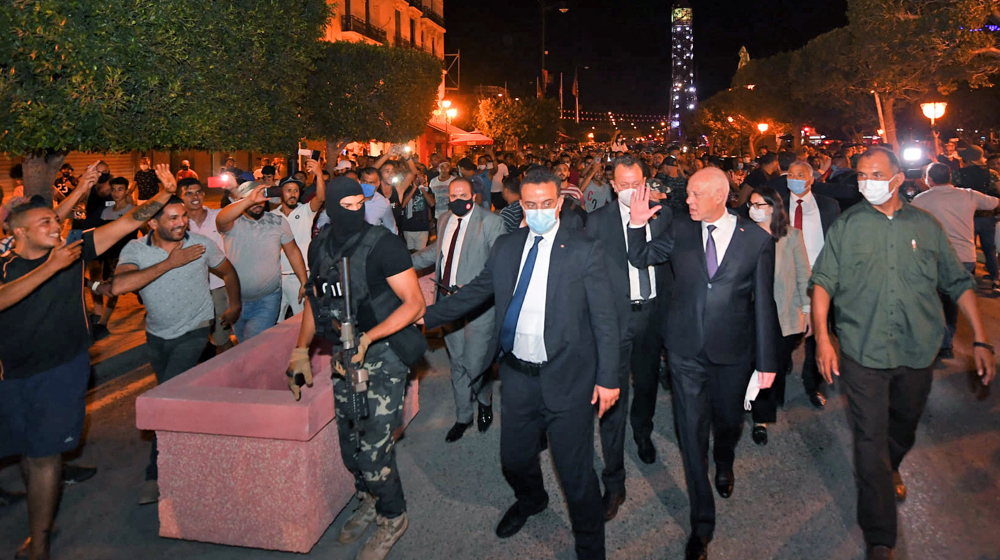

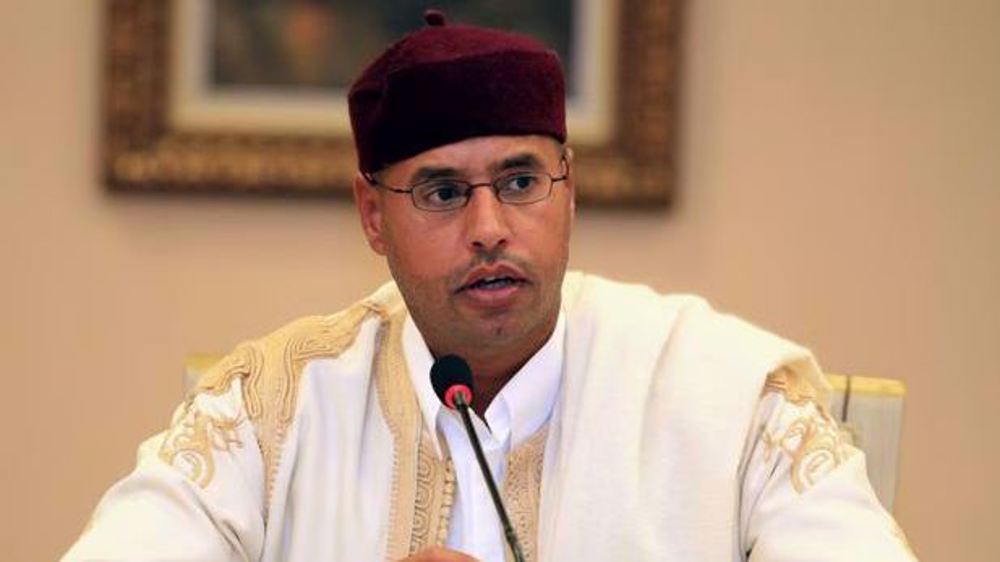
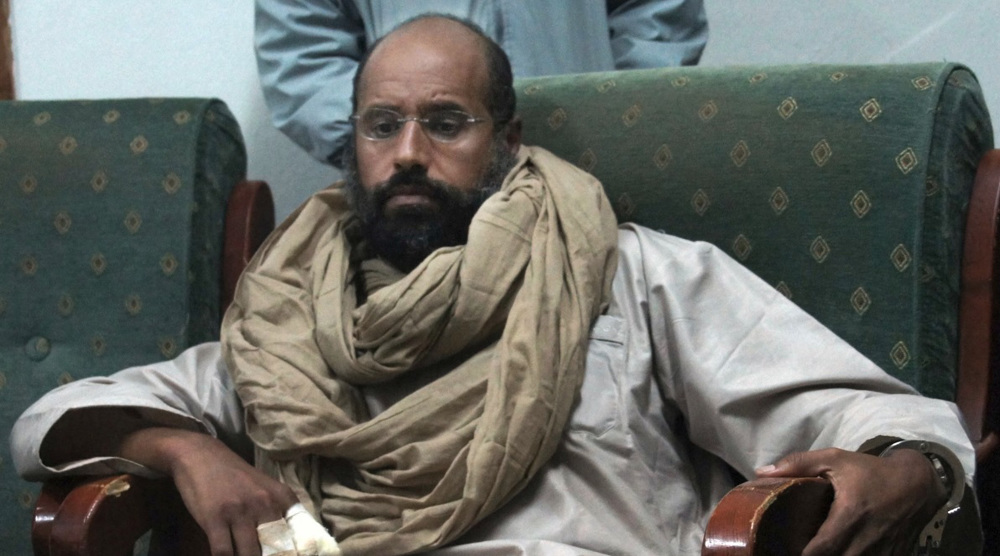



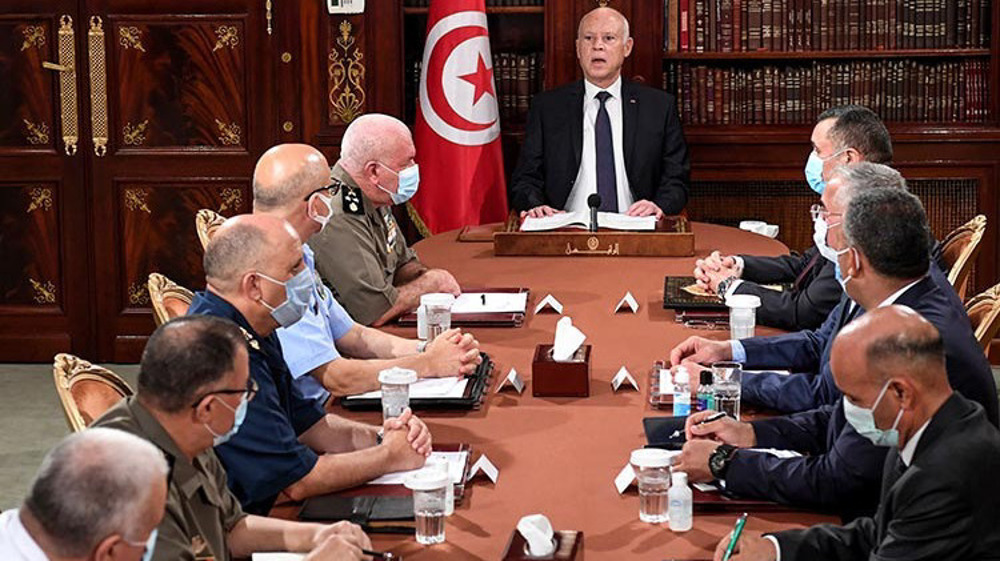
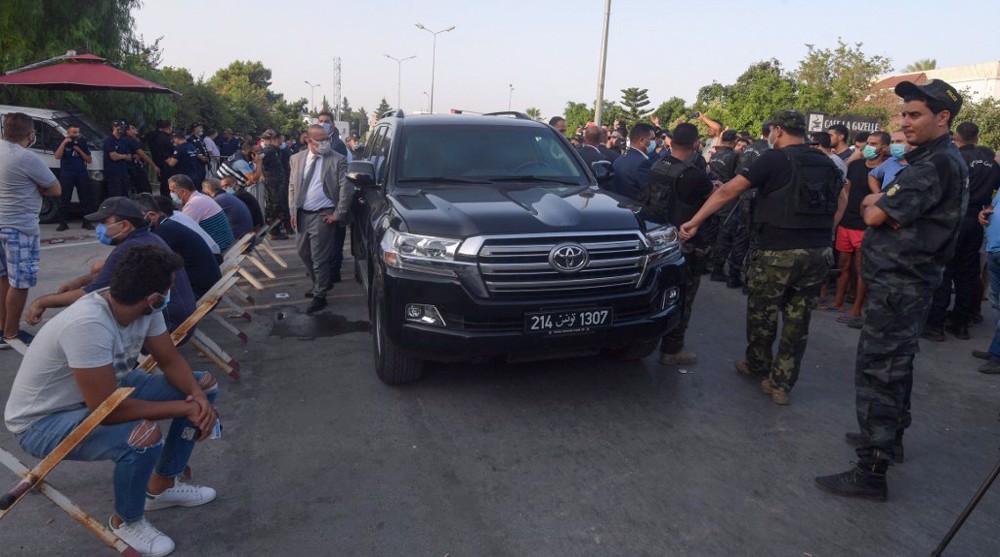
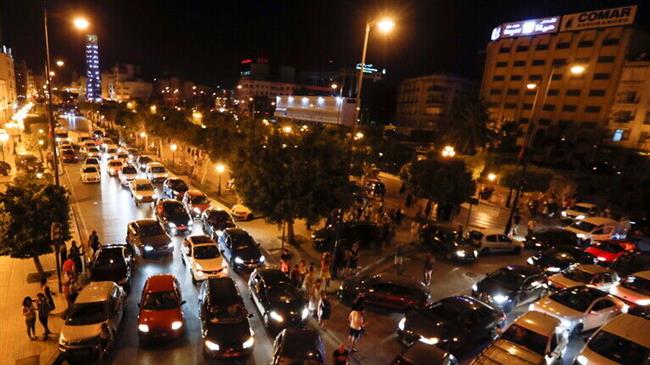
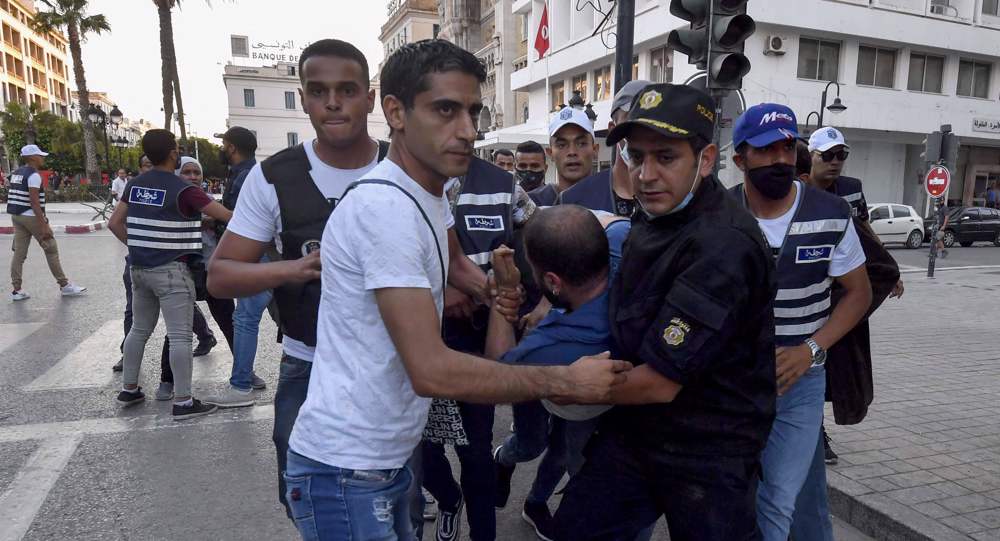

 This makes it easy to access the Press TV website
This makes it easy to access the Press TV website